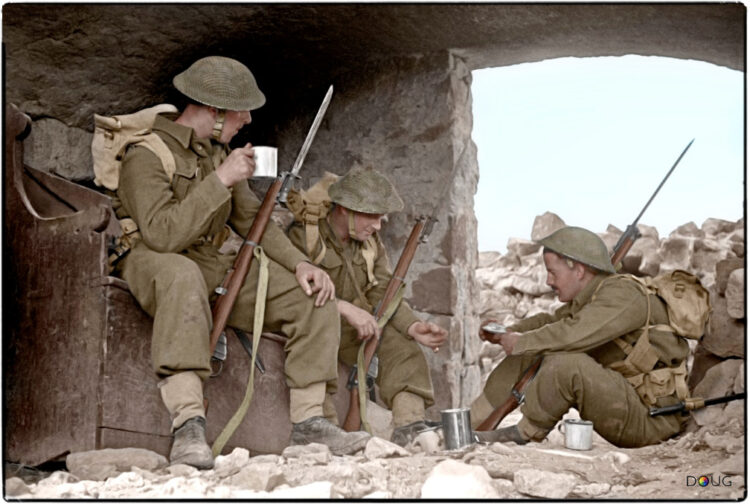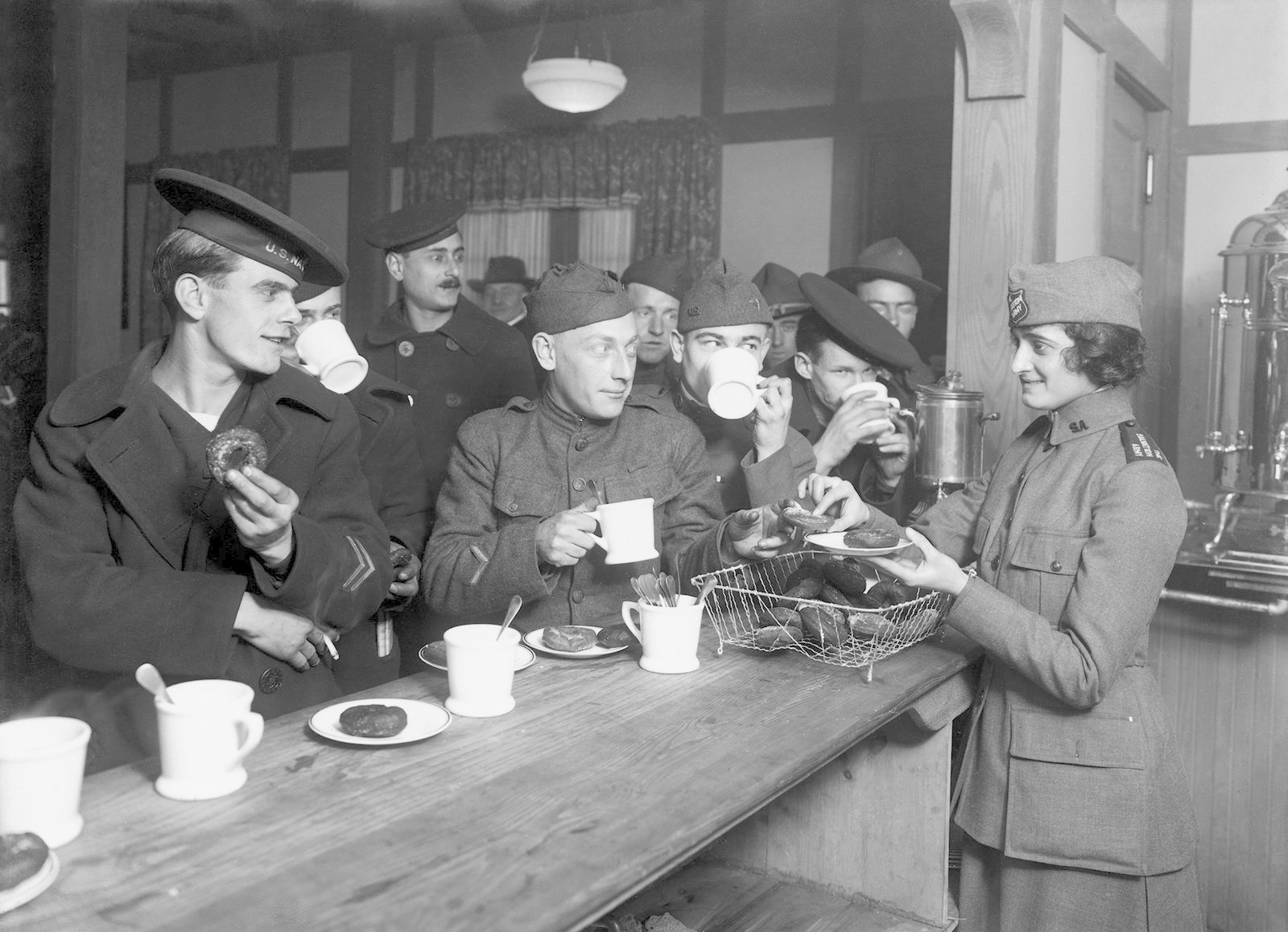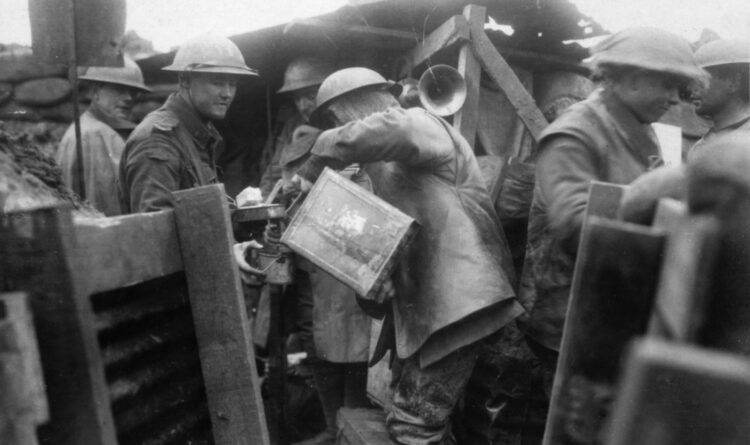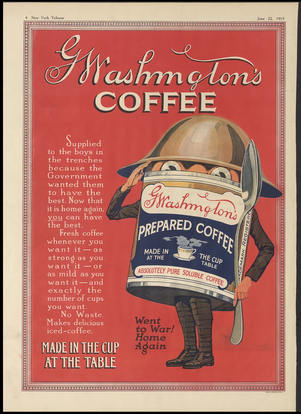While there were no coffee shops on every corner in Europe during WWI, American soldiers and sailors could still get that hot cup of coffee. Rationed at 27 pounds of coffee per servicemember per year, according to “America’s Munitions, 1917-1918”, over 75 million pounds of coffee were provided by the U.S. Quartermaster in 1918 alone. (To serve the most flavorful coffee to nearly 3 million American men and women serving overseas, it was decided that the beans should be shipped green and roasted “over there.”) Europe was largely cut off from the coffee-producing countries, due to the Trading with the Enemy Act of 18 September 1914. All commercial banks in the City of London had to break off business relations with the Central Powers. Imperial Germany imported coffee from Brazil via Sweden. Britain formed a naval blockade around the North Sea and English Channel to restrict maritime supplies (including coffee) from reaching Germany and its allies.

World War I was a tumultuous and challenging period in history, marked by the clash of nations and the sacrifices of millions of soldiers. Amidst the chaos and hardship of the war, coffee played a vital role in providing comfort, sustenance, and a much-needed dose of energy to soldiers on the frontlines. In this post, we delve into the significance of coffee during World War I and its impact on the soldiers’ morale and resilience. Coffee quickly became a staple beverage for soldiers during World War I. Its stimulating properties provided soldiers with a burst of energy, helping them endure the physical and mental demands of combat. A cup of coffee could provide a momentary respite from the harsh realities of war, offering a brief sense of comfort and familiarity in the midst of chaos. A high ranking official proclaimed that, “Coffee was as important as beef and bread,”. The U.S. War Department established local roasting and grinding plants in France to ensure fresh coffee for the troops.
A Japanese chemist named Satori Kato developed a successful way to make a soluble coffee powder, or dried coffee extract. Companies soon after developed instant coffee brands they could prepare quickly by adding water. The instant coffee was kept in small envelopes and could be added to hot water in coffee cups or tins. Demand for soluble coffee skyrocketed with the American entry into the Great War in 1917.
The simple act of brewing and sharing coffee fostered a sense of camaraderie and solidarity among troops. It provided an opportunity for soldiers to gather, share stories, and momentarily forget the horrors of the battlefield. The warmth and aroma of coffee created a comforting atmosphere, offering a brief escape from the grim realities of war. Coffee became an integral part of soldiers’ field rations, alongside other essential provisions. It was included in ration packs, alongside items like canned food, biscuits, and tobacco. Soldiers relied on these rations to sustain themselves during long marches, periods of trench warfare, and exhausting operations. The caffeine in coffee provided much-needed alertness, helping soldiers stay focused and alert during critical moments. The conditions of war often demanded resourcefulness and improvisation. Soldiers had to make do with limited supplies and improvised methods of brewing coffee. In the trenches, they used canteens, makeshift stoves, and any available vessels to brew coffee. The ability to adapt and find solace in a simple cup of coffee exemplified the ingenuity and determination of soldiers during challenging times.
The significance of coffee during World War I is deeply ingrained in the collective memory and remembrance of the war. It symbolizes the endurance, sacrifices, and bonds forged between soldiers. Coffee-related artifacts, such as coffee pots and cups, can be found in museums and war memorials, serving as poignant reminders of the soldiers’ experiences and the role coffee played in their daily lives.



